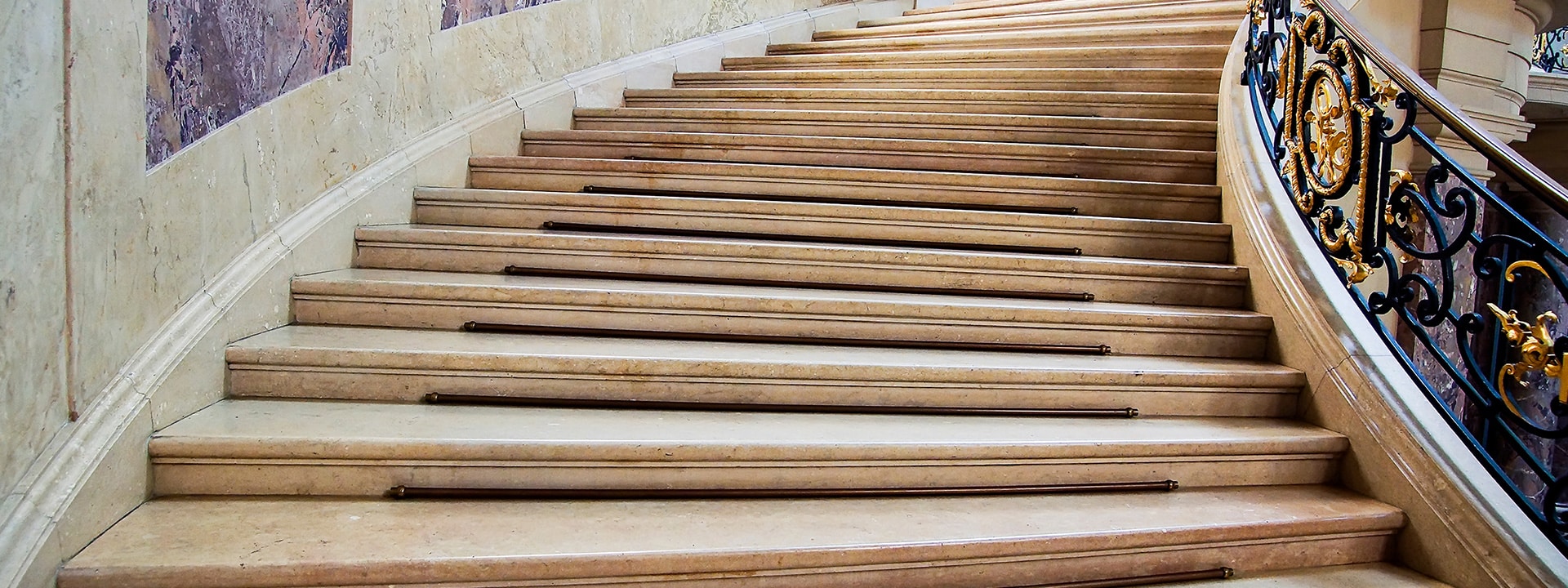Houdart A&C, the leading firm of chartered accountants and statutory auditors, is the reference for the auctioneers and the commissioners of justice’s profession
Houdart A&C, with its extensive historical client base among voluntary and judicial auctioneers in Paris but also throughout France, including Monaco, its commitment and close ties with the professional bodies governing the profession, and its specific expertise in valuation, taxation, law, and accounting, is the lading firm providing accounting and auditing services for auctioneers and commissioners of justice.
Houdart A&C is frequently consulted on technical matters by colleagues with clients in the auctioneer or judicial commissioner profession, because of its technical expertise in the accounting, tax and social particularities that characterize these two professions.
We act as advisors in numerous transactions involving the sale and valuation of offices and auctioneers’ voluntary sales. Over the past five years, we have been involved in around thirty such operations.
We provide training and disseminate technical documentation on taxation within the profession to effectively handle complex operations, particularly related to VAT.
As specialists in the accounting and tax techniques of these professions and as a firm strongly focused on digitalizing processes, we work closely with major software providers for these professions to assist them in aligning their products with tax and accounting regulations..
Voluntary auctioneers and Commissioners of Justice (judicial auctioneers), two distinct professions
Voluntary Auctioneer
In France the voluntary auctioneer can practice both as a ministerial officer for the execution of certain judicial acts, and get involved in the voluntary sales market through commercial companies under approval; the Voluntary Sales Houses. He can engage in either of these activities or both provided, he strictly separates the two activities. The Ordinance of November 2,1945, amended by Laws No. 2000-642 of 10 July 2000 and 2011-850 of 20 July 2011, separated voluntary and judicial sales activities.
In the context of voluntary sales, the auctioneer has the authority to organize auctions prescribed by law and perform the corresponding inventories and estimates. For more specialized sales, experts assist him.
Commissioners of Justice (judicial auctioneer)
As part of his judicial sales activity, he is invested with the office of ministerial officer and he engages his full responsibility in each of his acts as holder of an office. He intervenes in cases of successions, judicial liquidations or adjustments. He is then in charge of the appraisal (estimation) and the public auction of furniture and tangible assets.
By virtue of the “Macron Law of August 6, 2015“, an ordinance created the profession of “commissaire de justice” (Commissioners of Justice), which brings together the professions of judicial officers and judicial auctioneers. Only as of July 1, 2022, have bailiffs and judicial auctioneers been merged within this new profession.
Commissioners of justice are public and ministerial officers, just like the judicial auctioneers and bailiffs were.
This merger of the two professions, although still relatively theoretical due to the divergent training courses and technical skills required, brings about significant changes for these professions, which our firm, as an expert in both bailiff studies and auctioneer studies, experiences daily..
These changes primarily concern a wider scope of intervention. From now on, an auctioneer can now carry out findings at the request of an individual or a judge, enforce a court decision, serve a judicial document, or implement recovery procedures. Similarly, a judicial office (court bailiff) can now organize public auctions of art objects, furniture, or equipment as prescribed by law or a court decision (judicial auction, distinct from voluntary sales).
These changes also affect the supervision of both regulated professions, which are led by the National Chamber of Commissioners of Justice.
Beyond the specificity of accounting records and applicable taxation, particularly due to the complexity of VAT implementation for judicial auctioneers, software constraints exist within each of the professions related to legal constraints (such as the daily bank reconciliation and the transfer of fees on receipts from management to general accounting for bailiffs) or technical constraints (third party accounts by date of sale and not by seller or buyer within the general accounting of auctioneers). Without business software adaptation, the commissioners of justice will be compelled to use specific tools for each aspect of his activity.
With the representations of both professions and the various software providers in each field, Houdart A&C, as an expert accountant specializing in these professions, supports the implementation of these changes. A decree specifying the technical constraints that will be imposed on commissioner of justice’s software is expected.
Practicing professionals, whether auctioneers or bailiffs, must follow a transitional training program provided by the National Chamber of Commissioners of Justice, to acquire the qualification of commissioner of justice and obtain the necessary skills for the exercise of the missions not mastered. The training consists of 80 hours for Commissioners of Justice and 60 hours for bailiffs.
As of July 1, 2026, bailiffs and commissioner of justice who have not completed the specific training to obtain the title of commissioner of justice may be prohibited from practicing. There are exemptions to the entrance exam, notably through the validation of acquired experience.
Accounting, Tax, and Legal Characteristics of Voluntary auctioneers and Commissioners of Justice
Due to its status as a mandate holder and its activity, the legal and regulatory constraints defining the accounting and tax obligations of auctioneers are particularly stringent. As chartered accountant and statutory auditor specialized in the in the auctioneer and judicial commissioner professions,, Houdart A&C has a thorough mastery of these technical issues.
Accounting specificities
The profession requires the keeping of a police register in which all sales conducted by the office are recorded. In addition to the usual accounting obligations (keeping a general ledger, an asset register), managing the accounting of mandate holders imposes specific constraints to be respected: tracking of third-party accounts, management of the cash-flow intended for the principals, and adherence to the financial balance. Similarly, as far as the commissioners of justice are concerned , it is imperative to distinguish between funds managed on behalf of third parties and funds intended to cover their fees and disbursement.
The respect of the financial balance, i.e. the financial coverage of funds belonging to third parties, is essential for both professions. This balance, as well as the accounting, is annually verified by professional bodies governing the professions during accounting audits. A certificate is also drawn up by a chartered accountant to guarantee the office’s compliance with these accounting obligations and regulatory formalities.
The accounting specificities depend on the mode of practice of the profession: sole proprietorship, civil partnership, or commercial company. The accounting of individuals and professional civil companies can be kept using two methods: cash in – cash out or receivables – payables. Commercial companies, on the other hand, are obliged to present their accounts as receivables and payables.
The strict separation of professions between voluntary sales (auctioneer for voluntary sales) and judicial sales (commissioner of justice, and auctioneer of judicial sales before previously) require separate legal structures and strictly separate accounting.
Tax specificities
Depending on their operations, auctioneers may be considered as opaque or transparent intermediaries with regard to VAT, the application of which differs..
- When acting as an opaque intermediary (on behalf of others, but in their own name), they are taxed on the total amount of the transaction. They may, however, benefit from the margin tax regime corresponding to the commissions paid by buyer and seller.
- By acting as a transparent intermediary (in the name and on behalf of others), they are considered as service providers, subject to VAT on remuneration. The VAT rate applied is 20%.
As intermediaries, auctioneers are responsible for the settlement of capital gains tax and tax on precious metals.
When conducting transactions with third parties located abroad, certain issues arise, particularly from a tax point of view (VAT on temporary imports, declaration of exchange of goods, export proof).
Legal Specifics
The activity of an auctioneer, as a voluntary sales operator, can be carried out in the form of a commercial company.
As for the Commissioner of Justice, he may act as an individual in professional civil society (SCP) or in a liberal society (SEL), SELARL, SELAS. Since the Law of August 6, 2015 the Commissioners of Justice have the possibility to be partners in liberal multidisciplinary financial professional corporations (SPFPL).
This «Law for Growth, Activity and Equal Economic Opportunities» has also introduced a freedom of establishment with a revised installation permit every two years, revised the regulated fees applicable to the profession, modified the jurisdictional area for certain activities, and initiated a convergence between the profession of bailiff and the profession of auctioneers by expanding their areas of expertise.
Professional Representation
In the context of these two separate legal activities, auctioneers and commissioners of justice are represented by two professional bodies: the National Chamber of Commissioners of Justice for the judicial sector, and the Sales Council for the voluntary sector.
On authorisation of the law «Macron» of 6 August 2015, an order created the profession of commissioner of justice grouping the professions of judicial bailiff and judicial auctioneer.
Bailiffs and auctioneers will only be merged within this new profession as of July 1, 2022. Major evolutions are thus still to come in the scope of intervention of these professionals.
Useful Links
- Voluntary Sales Council:
www.conseildesventes.fr - National Chamber of Commissioners of Justice:
https://commissaire-justice.fr/ - National Chamber of Commissioners of Justice, judicial auctioneers section :
http://commissaires-priseurs.com/
Frequently Asked Questions about Auctioneers and Commissioners of Justice
What is the corporate form in which auctioneers can operate?
The activity of auctioneer, as an operator of voluntary sales, can be exercised in the form of a an individual enterprise or a commercial company (SA, SAS, SARL etc).
The activity of judicial auctioneer (commissioner of justice) can be carried out either as an individual enterprise (EI, EIRL, EURL), or within a professional civil society (SCP) or a liberal practice company (SEL, SELARL, SELAS).
How to evaluate the right of presentation of an auctioneer’s office?
The valuation of the right of presentation of an auctioneer’s office is based on the application of multiples of turnover, profit and EBITDA (earnings before interest, taxes, depreciation and amortization), commonly used in the profession. It is necessary to distinguish the valuation of the right of presentation as an intangible asset from the valuation of the net assets of the legal structure that holds it. However, before applying these multiples, it is important to adjust for the non-standard elements that could bias this valuation. Houdart A&C is the reference firm for the valuation of auctioneers’ offices.
What is a “Société de Participation Financière des Professions Libérales” (SPFPL)?
The Société de participation financière des professions libérale (SPFPL) is a social form of holding company dedicated to regulated professions allowing the holding of one or more shares in professional liberal practice companies (SEL).
The 2006 “Services” Directive and the Law of March 28, 2011 paved the way for the capital interprofessionalism of SPFPLs, which are a legal tool for the consolidation of multi-professional liberal practices.
Which collective agreement applies to the activity of auctioneers?
The national collective agreement for voluntary furniture auction companies and judicial auctioneer offices dated April 17, 2008 (IDCC 2785) applies to all employees working for an auctioneer’s office, including auctioneers practicing as employees inside or outside auctioneer offices, associations, and professional organizations of auctioneers, as well as the staff of statutory bodies of the profession.
Why choose a firm that masters the specificities of auctioneers and commissioners of justice?
The profession of auctioneer and commissioner of justice is characterized by a great technicality both in terms of taxation but also in legal, social and accounting terms. Whether we intervene as a chartered accountant or statutory auditor, we bring you expertise and responsiveness thanks to our mastery of these issues and our historical involvement in these professions.







